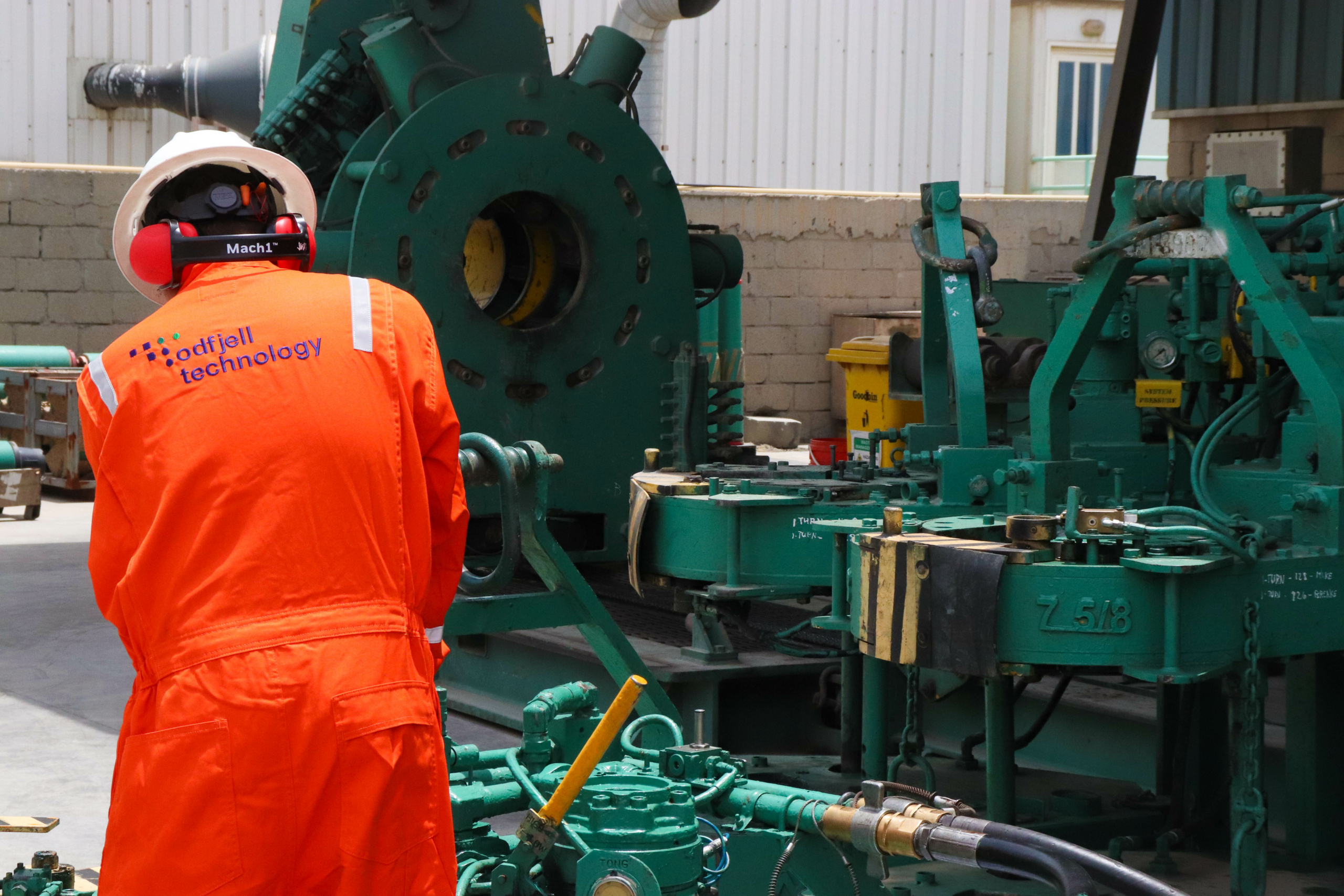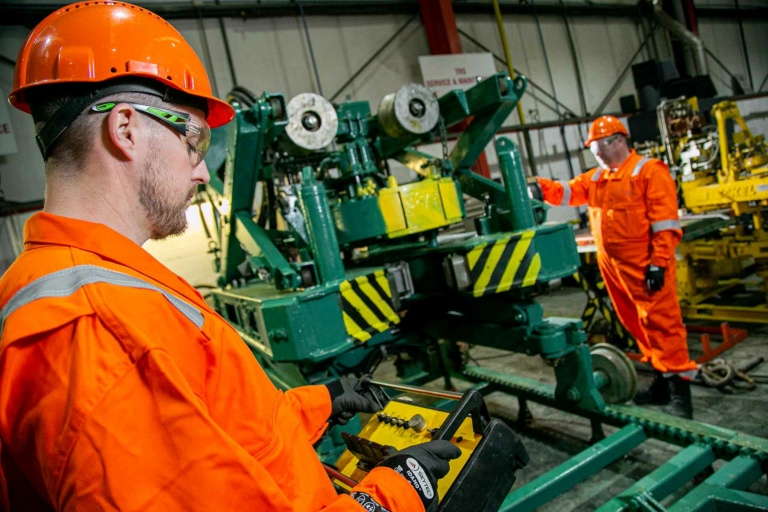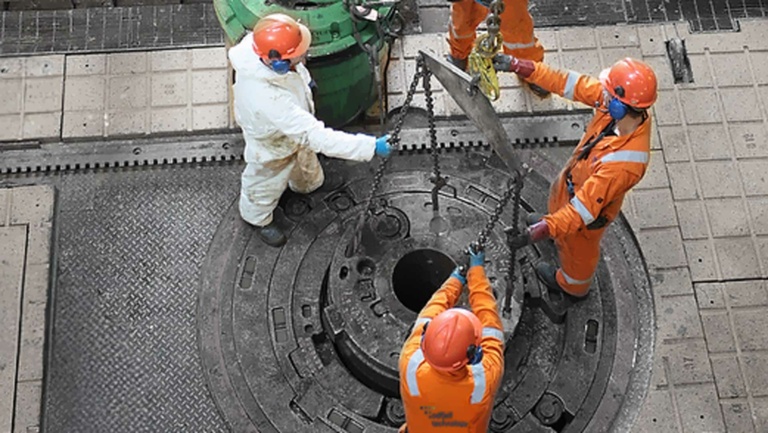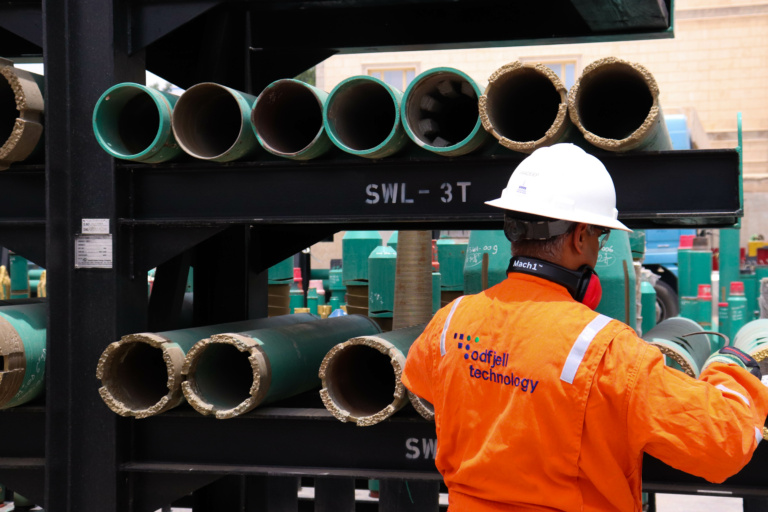Safety excellence – the key to Odfjell Technology’s LTI success
Lost Time Incidents (LTIs) performance is more than a metric to show on a graph in a company report.
At Odfjell Technology, LTIs don’t just show how we perform – they demonstrate our organisation’s unwavering commitment to protecting people, assets and the environment.
Simply: safety is our license to operate.
Just how far that culture is embedded in our operations is reflected in a series of impressive milestone moments that our people have helped Odfjell Technology achieve.
Our dedicated teams on the ground in Turkmenistan and Kuwait have achieved eight and six years respectively without an LTI, while in the UK the figure is nine years. In the Netherlands, we have gone 10 years – an entire decade – without one. The last LTI for our Well Services division as a whole was in 2019.
The secret to that success? It starts with a strong operational leadership committed to health and safety. Our leadership teams are visible on the ground, promoting an open reporting culture, taking prompt action and focusing on learning.
It grows with our Quality, Health, Safety, Security and Environment (QHSSE) team, supporting our operations around the world, which has been instrumental in creating an enviable culture of safety excellence.
And the success comes full circle with our people – our teams around the world and at the coal face that are the embodiment of the policies, practices and procedures that we have established.
Achieving results in Kuwait
Take our operations in Kuwait, which were established in 2018. The dedicated team in-country has performed to the highest safety standards, despite challenging conditions including severe heat and dramatic sandstorms, not to mention the hardship of travel restrictions for them and their families.
Our locally based personnel consistently achieve all safety-related KPI targets, carrying out their duties with no lost time or total recordable industries, serious incidents, High Potential Incidents (HIPOs) or dropped objects.
The positive safety culture fans out to work with our clients. In one five-year contract cycle with a major oil supplier, our Kuwait team maintained a score of over 90% – equivalent to an excellent performance rating – for all KPIs in the client’s quarterly performance management report.
The last full HSE management system audit conducted by that same client listed no non-conformities, with only four observations being recorded. In response to observations, we carefully evaluate and initiate preventative actions to ensure continuous improvement, but in this case the client saw an outstanding approach to safety with few opportunities for further enhancements.
All of these achievements have been topped off by the team successfully achieving ISO 9001 certification.
Outstanding success in Turkmenistan
In Turkmenistan – one of most remote bases operated by Well Services – the challenges are even more wide ranging: limited internet and connectivity, travel restrictions, language and cultural diversity all add another layer of complexity to not only meeting, but surpassing, QHSSE requirements.
The in-region team has achieved excellent HSE results, going above and beyond client expectations, and became an exemplar of good practice during COVID-19. They run operations safely with no injuries or dropped objects, and with all self-verifications performed to plan.
It is this approach to QHSSE that has led to the Turkmenistan team supporting an international oil and gas company in the Caspian Sea being recognised with an HSE award from this client for eight years of incident-free work.
Operating sustainably
While keeping people safe at work is often seen as the primary driver for QHSSE, Odfjell Technology never loses sight of our need to protect the environment and assets.
We’ve made significant progress on reducing our carbon footprint – some of that progress has been made by simple changes, but we’ve also made some bold decisions that underline our commitment to sustainable environmental and social practices.
One of these decisions relates to the forklifts we use in operations. In our Norwegian bases, we have been able to reduce fuel consumption by 80% by removing diesel-powered forklifts and investing heavily in an electric fleet.
Additionally, we have introduced a programme of human rights risk assessments in the countries where we are present and require our suppliers to sign up a code of conduct.
Supported by our QHSSE team together with HR and supply chain functions, we want to cultivate transparency and ensure alignment with our company values: where there is misalignment, we take action. A range of measures can be considered, including switching to suppliers that share our values on safeguarding human rights.
Although QHSSE is embedded into our culture and we see it as more than a tick box exercise – learning and improving is vital. Our targets and programme – created with input from employees across our global footprint to ensure a holistic approach – are published on our website.
Details of our 2024 QHSSE programme, which continue on some leading initiatives from the past 12 months, are live now.
Author
Sonia Anderson
VP QHSSE Well Services



